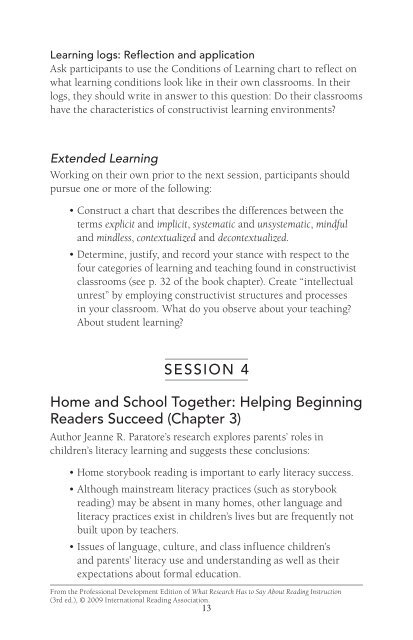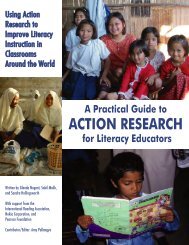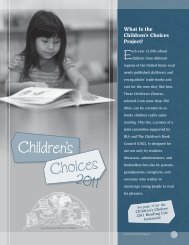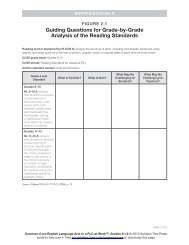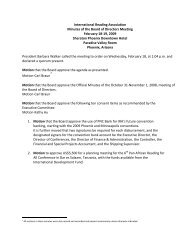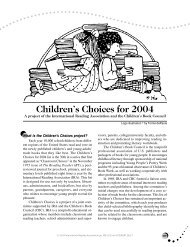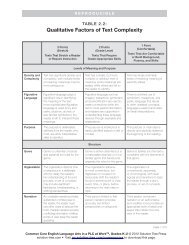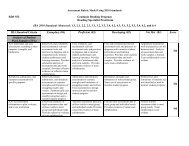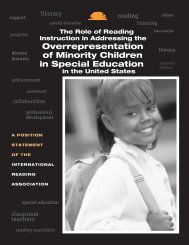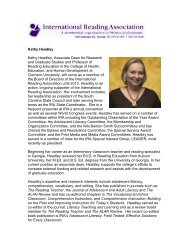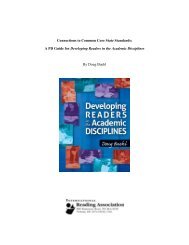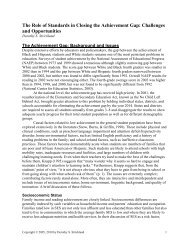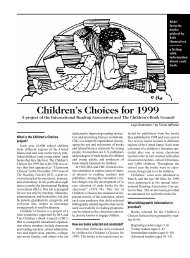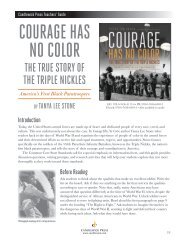What Research Has to Say About Reading Instruction - International ...
What Research Has to Say About Reading Instruction - International ...
What Research Has to Say About Reading Instruction - International ...
Create successful ePaper yourself
Turn your PDF publications into a flip-book with our unique Google optimized e-Paper software.
Learning logs: Reflection and application<br />
Ask participants <strong>to</strong> use the Conditions of Learning chart <strong>to</strong> reflect on<br />
what learning conditions look like in their own classrooms. In their<br />
logs, they should write in answer <strong>to</strong> this question: Do their classrooms<br />
have the characteristics of constructivist learning environments?<br />
Extended Learning<br />
Working on their own prior <strong>to</strong> the next session, participants should<br />
pursue one or more of the following:<br />
• Construct a chart that describes the differences between the<br />
terms explicit and implicit, systematic and unsystematic, mindful<br />
and mindless, contextualized and decontextualized.<br />
• Determine, justify, and record your stance with respect <strong>to</strong> the<br />
four categories of learning and teaching found in constructivist<br />
classrooms (see p. 32 of the book chapter). Create “intellectual<br />
unrest” by employing constructivist structures and processes<br />
in your classroom. <strong>What</strong> do you observe about your teaching?<br />
<strong>About</strong> student learning?<br />
SESSION 4<br />
Home and School Together: Helping Beginning<br />
Readers Succeed (Chapter 3)<br />
Author Jeanne R. Para<strong>to</strong>re’s research explores parents’ roles in<br />
children’s literacy learning and suggests these conclusions:<br />
• Home s<strong>to</strong>rybook reading is important <strong>to</strong> early literacy success.<br />
• Although mainstream literacy practices (such as s<strong>to</strong>rybook<br />
reading) may be absent in many homes, other language and<br />
literacy practices exist in children’s lives but are frequently not<br />
built upon by teachers.<br />
• Issues of language, culture, and class influence children’s<br />
and parents’ literacy use and understanding as well as their<br />
expectations about formal education.<br />
From the Professional Development Edition of <strong>What</strong> <strong>Research</strong> <strong>Has</strong> <strong>to</strong> <strong>Say</strong> <strong>About</strong> <strong>Reading</strong> <strong>Instruction</strong><br />
(3rd ed.), © 2009 <strong>International</strong> <strong>Reading</strong> Association.<br />
13


